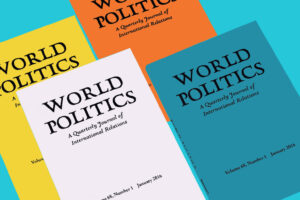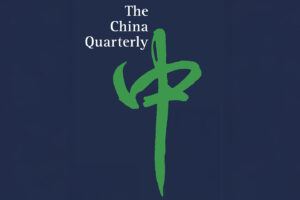Yuen Yuen Ang

Yuen Yuen Ang is the Alfred Chandler Chair Professor of Political Economy at Johns Hopkins University. Her work opens new ways of thinking for a disrupted, multipolar world, while also bridging academia, business, media, and policy. Named among the world’s 100 Most Influential Academics in Government by Apolitical, she is recognized for “research that resonates with policymakers and has the potential to steer the direction of government.”
Ang’s cross-disciplinary research has received multiple awards across political science, sociology, and economics. They include the inaugural Theda Skocpol Prize for “impactful contributions to the study of comparative politics” from the American Political Science Association (APSA) and the Andrew Carnegie Fellowship for “high-caliber scholarship that applies fresh perspectives to the most pressing issues of our times.”
Rejecting the paralysis of polycrisis, Ang launched polytunity as a counter-narrative, reframing disruption as an opening for deep transformation. At the heart of this call is Ang’s paradigm—AIM (Adaptive, Inclusive, Moral) Political Economy. AIM views political economies as complex adaptive systems (Adaptive), amplifies diverse indigenous solutions (Inclusive), and recognizes the power inequities that shape global institutions and thought (Moral).
AIM is a living intellectual forest with new concepts, theories, and projects that Ang continuously cultivates. Her award-winning books—How China Escaped the Poverty Trap (2016) and China’s Gilded Age (2020)—seeded and demonstrated applications of AIM in the context of China’s capitalist revolution. How China Escaped the Poverty Trap (2016) received the Peter Katzenstein (political economy) and Viviana Zelizer Prize (economic sociology). Praising this book, the Viviana Zelizer Committee noted, “it truly offers game-changing ideas… and should have a major impact across many social sciences.” China’s Gilded Age (2020) won the Douglass North Award (institutional economics) and Alice Amsden Award (socio-economics). Both books are recommended by The Economist and featured in a lecture series produced by INET.
Expanding the canopy of AIM, her latest projects explore China’s “low-productivity innovation drive” and its system of “adaptive policy communication” through ambiguous and clear mandates. The latter grew directly out of Chapter 3 of How China Escaped the Poverty Trap (2016) and is supported by a research grant from the U.S. National Science Foundation.
Beyond academia, Ang brings her ideas into dialogue with practitioners and leaders. At Johns Hopkins, she directs both The Polytunity Project and The Multipolar World & US-China Roundtables. The latter convenes experts across backgrounds in Washington D.C. to explore U.S.-China relations in an era of multipolarity. In addition, Ang is frequently invited to advise or share her research with international and public agencies, including the IMF, UNDP, World Bank, FCDO (UK), Norad (Norway), and the U.S. State Department. She has testified twice before the U.S.-China Economic & Security Commission. At Reuters, the world’s largest multimedia news provider, she serves as Trustee on a multinational board that guards the Trust Principles of journalistic integrity.
Originally from Singapore, Ang received her Ph.D. from Stanford University. At JHU, she serves on the faculty of the SNF Agora Institute, Center for Economy and Society, and Department of Political Science. Her office is at the JHU Bloomberg Center in Washington, D.C.
For updates, follow her on LinkedIn or subscribe to her new Substack: Polytunity.



